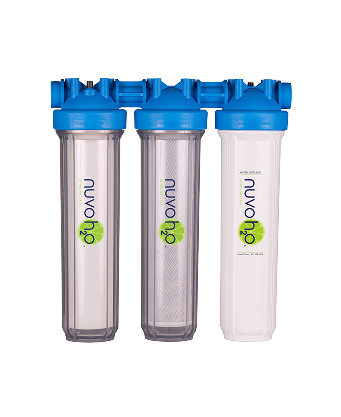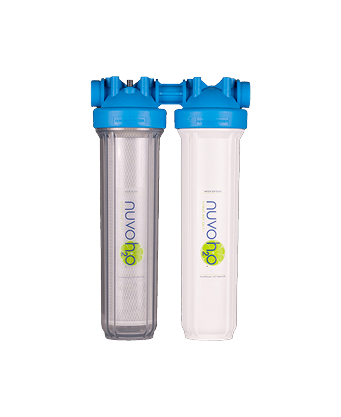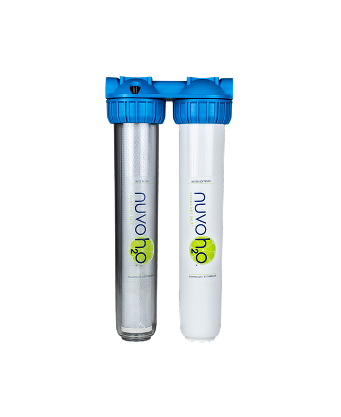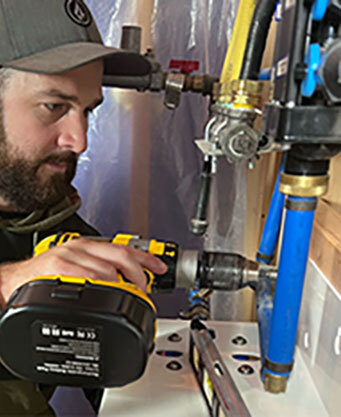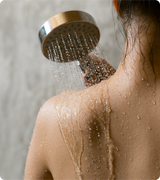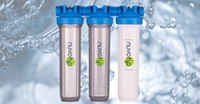
Water Softener vs Descaler (Which is Better For Your Home?)
26th Jun 2025
If you’ve noticed crusty white buildup on your faucets, dull laundry, or dry skin that just won’t go away, hard water could be the culprit. And if you’ve already started searching for a solution, chances are you’ve come across two main options: water softeners and water descalers.
Both aim to protect your home from the effects of hard water, but they go about it in very different ways. In this guide, we’ll break down the differences between water softeners vs descalers, explain what each one does, and help you decide which might be a better fit for your home.
What Is Hard Water, Exactly?
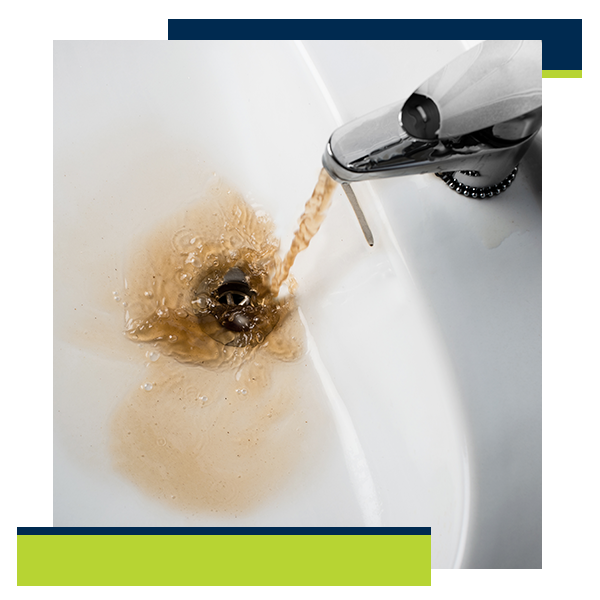
Hard water is simply water that contains a high concentration of minerals, mainly calcium and magnesium. While these minerals aren’t harmful to drink, they can create a whole lot of headaches around your home, including:
- Scale buildup on fixtures and appliances
- Reduced water pressure due to clogged pipes
- Stiff, faded laundry
- Soap that doesn’t lather properly
- Dry, itchy skin and hair
That’s where softeners and descalers come in.
What Does a Water Softener Do?

A water softener physically removes calcium and magnesium ions from your water through a process called ion exchange.
Here’s how it works:
- Hard water flows through a tank filled with resin beads.
- These beads are coated with sodium or potassium ions.
- As the water passes through, the calcium and magnesium ions are swapped out for sodium or potassium.
- You get softened water that no longer causes scale buildup.
Pros of water softeners:
- Eliminates hardness minerals completely
- Reduces scale buildup in plumbing and appliances
- Helps soap lather better
- Leaves hair and skin feeling softer
- Makes laundry brighter and less stiff
Cons of water softeners:
- Requires regular salt refills
- Produces wastewater during regeneration cycles
- Larger footprint and installation space
- Not ideal for septic systems in some areas
- Can add trace amounts of sodium to your water
What Is Descaling, and What Does a Water Descaler Do?
Unlike softeners, water descalers (sometimes called conditioners) don’t remove minerals from your water. Instead, they alter the structure of calcium and magnesium so they’re less likely to stick to surfaces and cause buildup.
There are a few types of descalers:
- Electronic descalers use low-frequency electromagnetic pulses to change mineral behavior.
- Magnetic descalers rely on magnetic fields placed around your pipes.
- Template-assisted crystallization (TAC) systems convert hardness minerals into harmless crystals that don’t cling to surfaces.
So, what does a water descaler do? In short, hard water descaling prevents the effects of hard water (like scale buildup) without technically softening the water.
Pros of water descalers:
- No salt or chemicals
- No wastewater
- Little to no maintenance
- Easy to install (compact footprint)
- More eco-friendly
Cons of water descalers:
- Doesn’t reduce the hardness level
- Doesn’t improve soap lathering or water feel
- Effects may be less noticeable.
- It may not be suitable for very hard water.
- Limited protection against dry skin or dingy laundry
Descaler vs. Water Softener: Side-by-Side
|
Feature |
Water Softener |
Water Descaler |
|
Removes minerals? |
Yes |
No |
|
Prevents scale buildup? |
Yes |
Yes |
|
Improves soap & laundry? |
Yes |
Not significantly |
|
Maintenance needed? |
Salt refills, cleaning |
Minimal |
|
Eco-friendly? |
Uses water & salt |
No waste, no chemicals |
|
Upfront cost |
High |
Moderate |
|
Ongoing cost |
Moderate (salt, water usage) |
Low |
|
Best for |
High hardness levels, full softening |
Mild/moderate hardness, scale prevention |
So, Which Is Better for Your Home?
It depends on what your priorities are:
- If you’re battling very hard water and want to eliminate all the typical symptoms (itchy skin, soap scum, faded laundry), a traditional water softener may be a strong choice if you’re okay with the ongoing salt and maintenance needs.
- If you're looking for a low-maintenance, eco-friendly solution that still prevents scale buildup, a salt-free water descaler could be a better fit.
And if you’re looking for the best of both worlds—effective scale prevention, filtration, and salt-free softening—there is a smarter alternative.
A Smarter, Salt-Free Option
Our home softening systems at NuvoH2O fight scale and prevent it from forming while also filtering out contaminants like sediment, chlorine, and iron. Instead of using salt or harsh chemicals, it relies on our patented CitraCharge® formula, powered by citrus, to bind and neutralize hard water minerals.
You get:
- Effective descaling without salt
- Cleaner water throughout your home
- Protection for appliances, plumbing, and fixtures
- Softer hair and skin
- No waste, no salt bags, and no electricity
And because our systems are modular, you can choose the configuration that fits your water source and filtration needs best.
Choose What Works for You
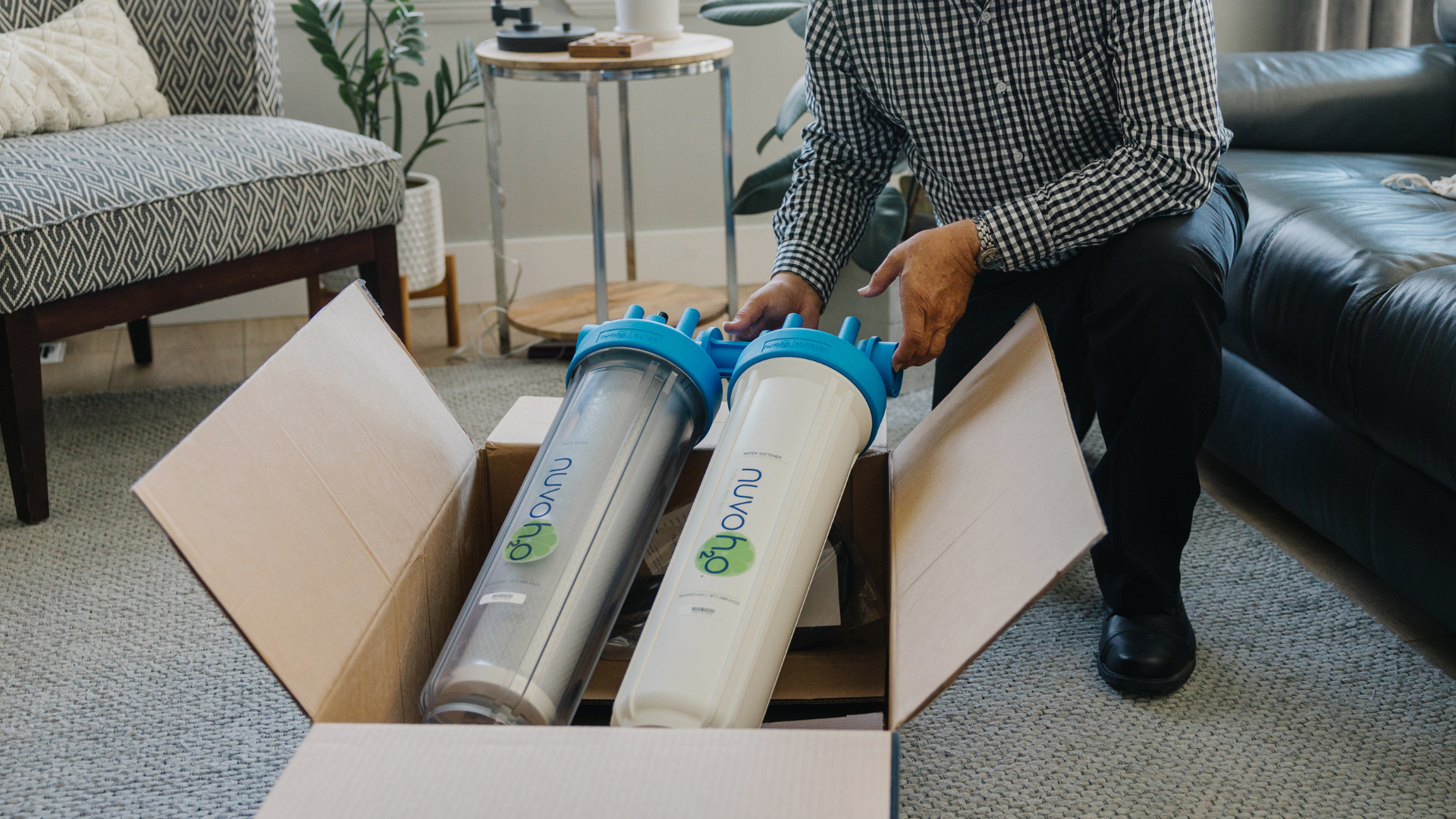
When comparing water softener vs descaler, the right answer depends on your water, your lifestyle, and how much maintenance you’re willing to take on.
If you want to:
- Completely remove hard minerals, look into a traditional softener
- Reduce scale without hassle, a salt-free descaler might do the trick.
- Get the benefits of both (plus filtration), try a salt-free system like NuvoH2O’s Whole Home Trio.
Still not sure? We’re here to help. Take our quiz or get a free water assessment and find out what your home really needs.

